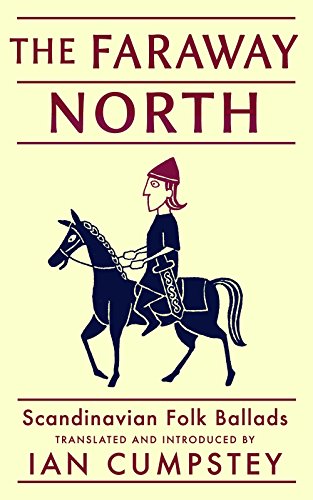
And it was then Sigurd Sven,
He rode on under the hills,
And a troll came down from the high fells,
And asked to ride with him.
A troll came down from the high fells,
All dressed in a shirt of silk,
His nose was like a cattleshed,
And his eyes like tarns on the hill.
I have a fondness for old ballads. Mostly I’ve read the British kind (you may have read “Barbara Allen” or “Sir Patrick Spens” in school). They’re voices of the past; sometimes heard indistinctly, sometimes garbled in the hearing, sometimes in the retelling. Often they’re like assemblies of interchangeable parts – you can mix and match them. Or change the hero’s name and you’ve got a ready-made new story. The ballad is often a marvel of narrative simplicity – you may learn what’s happening solely through dialogue (even monologue); you may even have to guess a bit what’s going on.
I’ve had some exposure to Scandinavian ballads in the past; generally they follow the same forms the British ones. The chief difference is that when a hero in a British ballad meets a supernatural being, it’s likely to be some kind of Faery. In the Scandinavian kind, you get trolls most often, then sometimes it’s the Huldre (the Underground Folk, the Scandinavian equivalent of Faery; I mention them in my novels).
Ian Cumpstey is a Swedish-to-English translator, but in his collection, The Faraway North, he has collected examples from Norwegian, Danish, and Swedish ballads, all done over into English. They sound very much like the ones we’re familiar with. They don’t always rhyme, but ours don’t either – I wondered as I read whether the translator’s creativity had failed, but he says in his notes that the originals often don’t rhyme either.
We encounter some famous characters in these verses – St. Olaf and King Harald Hardrada, for instance, or Sigurd (the one in the verses quoted above), better known to us as Siegfried the Dragon-slayer. But many of them are mysteries – if their characters ever lived at all, their stories are preserved only in these songs.
I enjoyed read The Faraway North very much. You might like it too, if you’re fond of antiquities.
